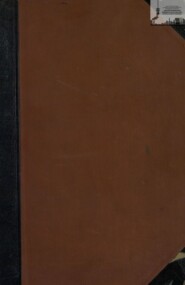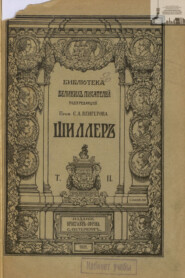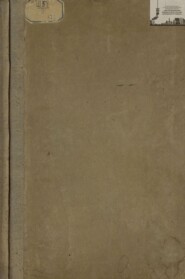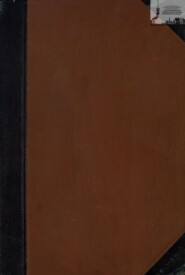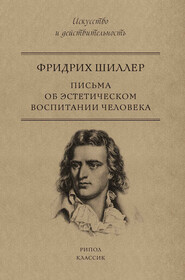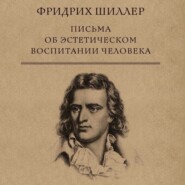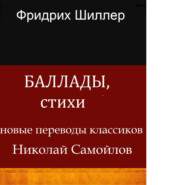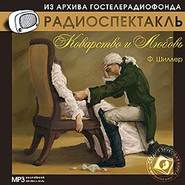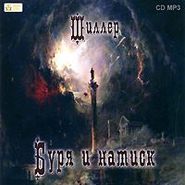По всем вопросам обращайтесь на: info@litportal.ru
(©) 2003-2025.
✖
The Piccolomini
Автор
Год написания книги
2017
Настройки чтения
Размер шрифта
Высота строк
Поля
THEKLA (interrupting her, and attempting to soothe her)
Nay now, be friends with me.
COUNTESS
It is not yet so far gone.
THEKLA
I believe you.
COUNTESS
Did you suppose your father had laid out
His most important life in toils of war,
Denied himself each quiet earthly bliss,
Had banished slumbers from his tent, devoted
His noble head to care, and for this only,
To make a happier pair of you? At length
To draw you from your convent, and conduct
In easy triumph to your arms the man
That chanced to please your eyes! All this, methinks,
He might have purchased at a cheaper rate.
THEKLA
That which he did not plant for me might yet
Bear me fair fruitage of its own accord.
And if my friendly and affectionate fate,
Out of his fearful and enormous being,
Will but prepare the joys of life for me —
COUNTESS
Thou seest it with a lovelorn maiden's eyes,
Cast thine eye round, bethink thee who thou art; —
Into no house of joyance hast thou stepped,
For no espousals dost thou find the walls
Decked out, no guests the nuptial garland wearing;
Here is no splendor but of arms. Or thinkest thou
That all these thousands are here congregated
To lead up the long dances at thy wedding!
Thou see'st thy father's forehead full of thought,
Thy mother's eye in tears: upon the balance
Lies the great destiny of all our house.
Leave now the puny wish, the girlish feeling;
Oh, thrust it far behind thee! Give thou proof
Thou'rt the daughter of the mighty – his
Who where he moves creates the wonderful.
Not to herself the woman must belong,
Annexed and bound to alien destinies.
But she performs the best part, she the wisest,
Who can transmute the alien into self,
Meet and disarm necessity by choice;
And what must be, take freely to her heart,
And bear and foster it with mother's love.
THEKLA
Such ever was my lesson in the convent.
I had no loves, no wishes, knew myself
Only as his – his daughter – his, the mighty!
His fame, the echo of whose blast drove to me
From the far distance, weakened in my soul
No other thought than this – I am appointed
To offer myself up in passiveness to him.
COUNTESS
That is thy fate. Mould thou thy wishes to it —
I and thy mother gave thee the example.
THEKLA
My fate hath shown me him, to whom behoves it
That I should offer up myself. In gladness
Him will I follow.
COUNTESS
Not thy fate hath shown him!
Thy heart, say rather – 'twas thy heart, my child!
THEKLA
Faith hath no voice but the heart's impulses.
I am all his! His present – his alone.
Is this new life, which lives in me? He hath
A right to his own creature. What was I
Ere his fair love infused a soul into me?
COUNTESS
Thou wouldst oppose thy father, then, should he
Have otherwise determined with thy person?
[THEKLA remains silent. The COUNTESS continues.
Thou meanest to force him to thy liking? Child,
Nay now, be friends with me.
COUNTESS
It is not yet so far gone.
THEKLA
I believe you.
COUNTESS
Did you suppose your father had laid out
His most important life in toils of war,
Denied himself each quiet earthly bliss,
Had banished slumbers from his tent, devoted
His noble head to care, and for this only,
To make a happier pair of you? At length
To draw you from your convent, and conduct
In easy triumph to your arms the man
That chanced to please your eyes! All this, methinks,
He might have purchased at a cheaper rate.
THEKLA
That which he did not plant for me might yet
Bear me fair fruitage of its own accord.
And if my friendly and affectionate fate,
Out of his fearful and enormous being,
Will but prepare the joys of life for me —
COUNTESS
Thou seest it with a lovelorn maiden's eyes,
Cast thine eye round, bethink thee who thou art; —
Into no house of joyance hast thou stepped,
For no espousals dost thou find the walls
Decked out, no guests the nuptial garland wearing;
Here is no splendor but of arms. Or thinkest thou
That all these thousands are here congregated
To lead up the long dances at thy wedding!
Thou see'st thy father's forehead full of thought,
Thy mother's eye in tears: upon the balance
Lies the great destiny of all our house.
Leave now the puny wish, the girlish feeling;
Oh, thrust it far behind thee! Give thou proof
Thou'rt the daughter of the mighty – his
Who where he moves creates the wonderful.
Not to herself the woman must belong,
Annexed and bound to alien destinies.
But she performs the best part, she the wisest,
Who can transmute the alien into self,
Meet and disarm necessity by choice;
And what must be, take freely to her heart,
And bear and foster it with mother's love.
THEKLA
Such ever was my lesson in the convent.
I had no loves, no wishes, knew myself
Only as his – his daughter – his, the mighty!
His fame, the echo of whose blast drove to me
From the far distance, weakened in my soul
No other thought than this – I am appointed
To offer myself up in passiveness to him.
COUNTESS
That is thy fate. Mould thou thy wishes to it —
I and thy mother gave thee the example.
THEKLA
My fate hath shown me him, to whom behoves it
That I should offer up myself. In gladness
Him will I follow.
COUNTESS
Not thy fate hath shown him!
Thy heart, say rather – 'twas thy heart, my child!
THEKLA
Faith hath no voice but the heart's impulses.
I am all his! His present – his alone.
Is this new life, which lives in me? He hath
A right to his own creature. What was I
Ere his fair love infused a soul into me?
COUNTESS
Thou wouldst oppose thy father, then, should he
Have otherwise determined with thy person?
[THEKLA remains silent. The COUNTESS continues.
Thou meanest to force him to thy liking? Child,






